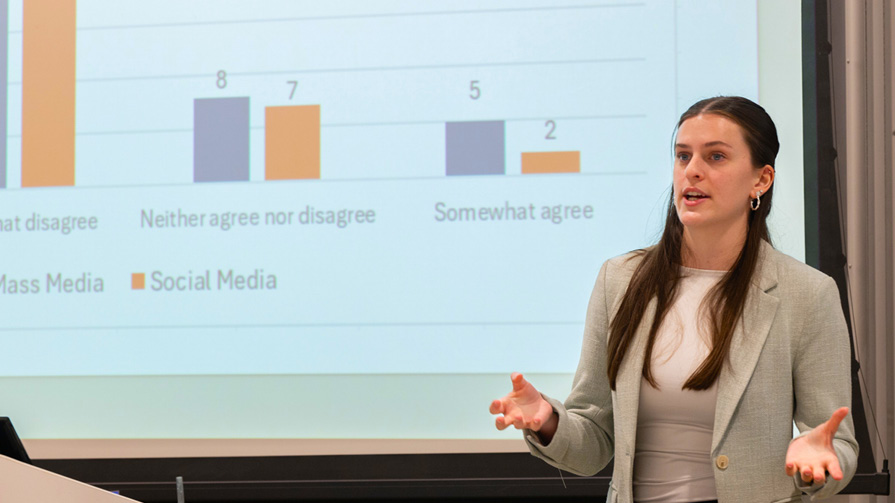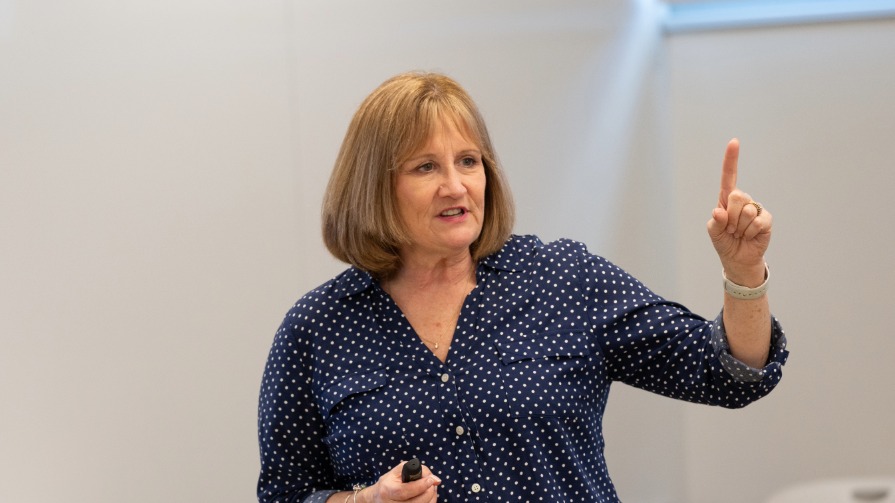Statistical Inference for Everyone, an open educational resource created by Professor of Science and Technology Brian Blais, Ph.D., approaches the traditional introductory statistical inference textbook in a novel way. Innovative in both its content and distribution, the resource’s creation was a learning experience for an educator who is always seeking new ways to teach and challenge assumptions.
“This is something I wrote as a proof of concept,” Blais explains. “I thought, I'm going to write my own textbook to show how it could be done.”
An open resource
First launched in 2014, Statistical Inference for Everyone is available for free under a Creative Commons License at https://tinyurl.com/stats-for-everyone. It includes a software library for making calculations and visualizations. Its accessibility was of key importance to Blais. “I wanted to put something out there that everyone could use,” he notes. “I wanted to make sure that the barrier to entry for everyone was as low as possible.”
The open-publication model he adopted for the project has other advantages as well. “A problem might come up in a physics lab course such as ‘How many data points do I need to take?’ or ‘How do I do this particular analysis,’” says Blais. “I can add it to the book right then and there. And so the students have access to a resource that adjusts based on the problems they are actually dealing with.”
Beyond the techniques they’ll learn from the resource, there’s another lesson students can take from the project, Blais says, one he tries to impart in all of his courses. “One of the things I try to encourage is that we should be upfront about uncertainty, and specific about understanding the assumptions we make and the models we use,” says Blais, whose 2018 TEDxBryantU talk focused on challenging commonly-held beliefs and applying Bayesian thinking to everyday life. “We all need to employ, and assess, multiple models of thinking.”
New viewpoint
Targeted to "Statistics 101" college students, Statistical Inference for Everyone addresses the topics typically covered in introductory courses from a fresh angle. Informed by the perspective of "probability theory as logic,” it walks students through a simple introduction to probability and then applies those principles to a range of problems of inference. It also covers subjects including hypothesis testing, data visualization, parameter inference, and model comparison.
“There are two schools of thought about statistical inference. One is what is traditionally called frequentist, or orthodox, and the other, which is traditionally called Bayesian,” explains Blais. “I found, over time, that the Bayesian approach seemed to me to be the correct one, yet it occupies a kind of strange position in mathematics and statistics in that none of the introductory classes use that approach.”
Blais sought to address that gap, or at least further the discussion. “This was a textbook that I wrote, in a sense, to prove a point, to show how we could do an introductory statistics class from the Bayesian point of view,” he says.
Connecting with students
In writing the resource, Blais drew upon his graduate school experience as a teacher’s aide, when he would create guides for students on various topics, reinforcing areas that the students found confusing.
“I think one of my favorite parts of teaching is coming up with interesting examples that really highlight a particular topic, but are entertaining,” Blais says. The story of a German octopus that could allegedly use psychic powers to predict World Cup matches, for example, is used to illustrate the probability of random events.
“Part of teaching is connecting with students,” notes Blais, who has used concepts drawn from popular culture such as comic book hero superpowers and zombie infection models to illustrate key science concepts in his courses. “It’s about coming up with something that is captivating for the students, but is also rigorous and complete.”






